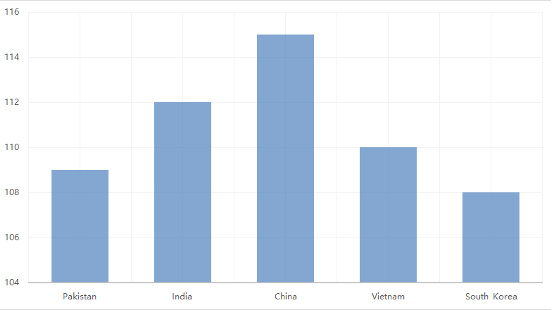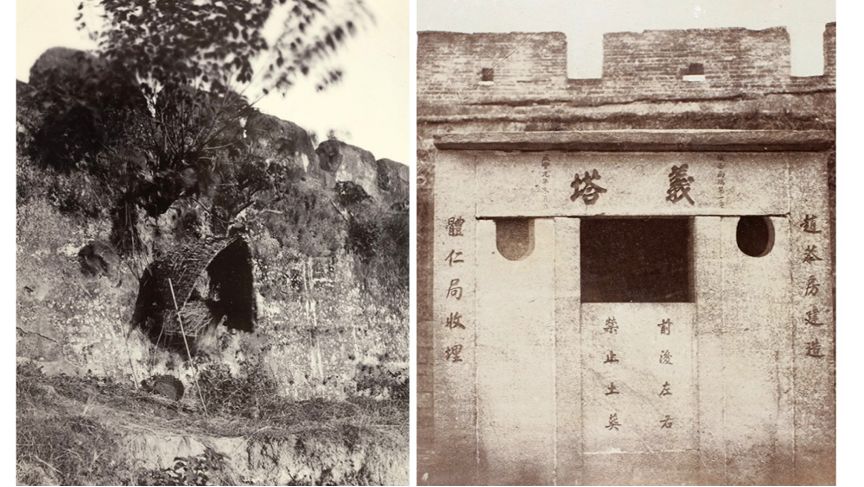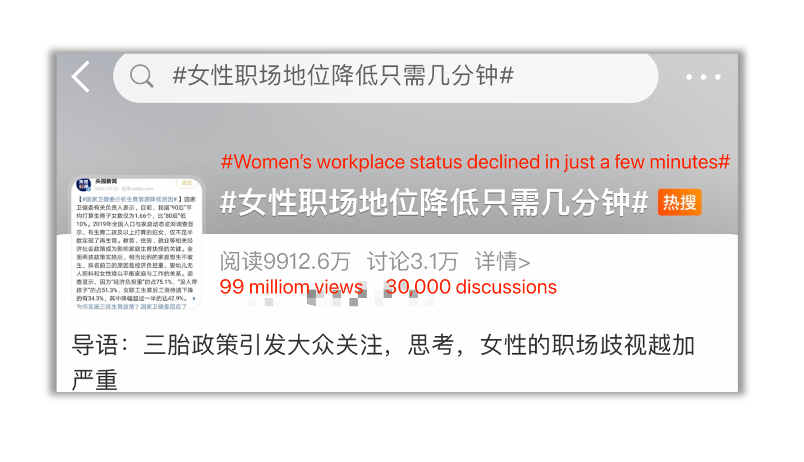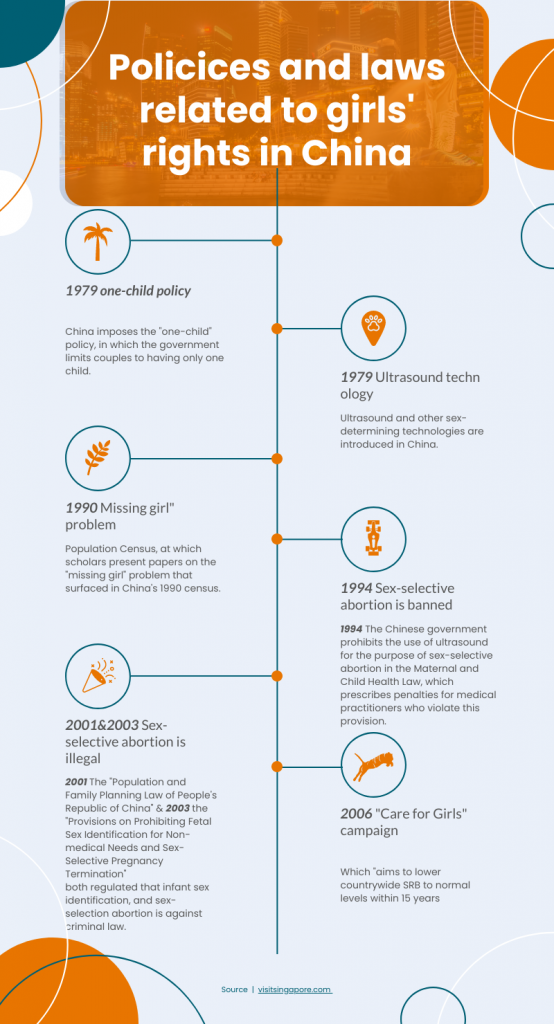China’s SRB has hit a record low in the last 20 years. Does this reflect the real change of the son preference value in our society?
On an ordinary Saturday afternoon, Shangqu Jin, a 24-year-old producer assistant in Chongqing, sat alone at a restaurant waiting for someone for three hours. The lavish spread in front of her had got cold. Controlling sadness and dismay, which is evident on her face, there’s a sense of tension in the air. The restaurant manager saw this, thought it was another sad story of a girl being hurt by a boy, and brought her a piece of cake, comforting her not to be unhappy about the relationship.
However, this made her even more embarrassed. She said thanks out of courtesy, but she didn’t explain that the person who missed the appointment was her mother.
It’s not the first time this thing happened. However, her mother’s reason for missing the appointment is straightforward. She needs to clean her younger brother’s apartment, cook for him on weekends, and forget her daughter’s appointment.

“After I left home to go to university, my family rarely contacted me. Occasionally when we had a phone call, my mum always kept talking about my brother and never cared about my life.”
You cannot tell that this is a son preference family by any stretch of the imagination if you are not Shangqu herself. Both her parents are well educated, and invested a lot of money in her education, bought her and her brother an apartment after they graduated. It seems like a happy middle-class family, but Shangqu knows what she has experienced for the last 24 years and how she and her brother were treated differently.
However, this is just a microcosm of thousands of undetectable son preferences in urban families under the combination of traditional culture and modernised social value.
SRB in China hits record low in last 20 years
Since 1982, the sex ratio at birth has seriously deviated from the normal range and hasn’t returned to normal values until now. This has attracted widespread attention from the whole society. Since then, this indicator has become new evidence of serious son preference in China. SRB is the male births per 100 female births, and the normal range is 103-107. SRB of China researched its highest point 118.6 in 2005. After that, it has been on a downward trend.
In May 2021, after the report of the seventh census in 2021 is released, the latest SRB data is 111.3. Various news media immediately made relevant reports on the decline of this data. According to Chinanews‘s coverage, this decline reflects the gender structure of our population continues to improve, the son preference phenomenon has been curbed.


SRB at Asia 2018. Source from: The Global Gender Gap Report | WORLD Economic Forum
In 1919-1920, the writer Maugham came to China, saw a structure called the baby tower, and described in his book “On a Chinese Screen”: Buying a baby for two cents can save them from a place called “Baby Tower”. The baby tower is a place to bury dead children and discard unwanted children, and it is also evidence of the Female infanticide at the end of the Qing Dynasty.

In February 2019, a 12-year-old girl who studied abroad was found carrying 142 blood samples of pregnant women when she exited the customs at Shenzhen Luohu Port, and these samples were to sent overseas to check the sex of the fetus. Since implementing the one-child policy in 1979, many families have chosen prenatal sex identification and sex-selective abortion to have a son. However, in 2001, to protect girls’ rights, these were classified as illegal behaviour in China.
A hundred years have passed, society is more civilised and developed. Female infanticide almost doesn’t exist anymore. Both public and the government have attached great importance to the issue of population gender balance. However, it seems like today, something of son preference culture has changed, and something doesn’t.
However, when we open a search engine or social media like WeChat. An intermediary that helps send pregnant women’s blood samples to foreign countries for testing can be easily found. And according to Sina News, a survey shows that 14% of the people believe that the drugs sold on the Internet that claim to be able to turn a female fetus into a male fetus are effective. These are all proofs that son preference still exists in China, but it’s not easy for us to connect it to an urban family like Shangqu.

A simple search on WeChat can find many institutions that help check the sex of the fetus. Credit: Xinyue Jia
Being emotionally neglected
In Shangqu’s past life, she had experienced two operations, one because of pneumonia and one because of uterine fibroids. Not once, her parents were there by her side. She stayed in the hospital by herself until healed. But when her younger brother had the operation, her mother lived in the hospital. The most dramatic once was when she came home in summer break, only to find that it was a stranger who opened the door, standing there, totally confused with her coming. While her family has moved for two months, and she is the only one who didn’t know about it.
Shangqu describes her as a victim of Stockholm syndrome when it comes to her mother, which is an emotional response that victims have positive feelings toward an abuser. “I keep getting hurt by my mother, but I always tried to please her, wishing mum would pay more attention to her and recognise my value for being a daughter.”

Shangqu said: “Most of the time when I am being with my mother, I would think, why am I not a boy? If I were a boy, maybe they would not have the second child.”
The thing that hurt her most was her mother’s denial of her son’s preference behaviour. She tried to communicate with her mother, but her mother insisted denied that she favoured her brother. But she also said, “To a certain extent, I don’t want to admit that too. If so, I can deceive myself that mum loves me. It’s just because I’m not doing well enough.”
In China, son preference is connected with something “feudal” and “not progressive”. It’s inconsistent with the collective values. A decent family like Shangqu’s parents undoubtedly won’t be connected with this “backward” culture. For a personal or a family who has son preference, they won’t admit this themselves. it became more and more implicit and undetectable.
#Women’s workplace status declined in just a few minutes#
“Women’s workplace status decline in just a few minutes” is a hashtag on Weibo. On May 31, 2021, the Chinese government announced the three-child policy, a family can have three children. In the afternoon of the same day, this hashtag appeared on the Internet, and 90 million people followed the hashtag.
The cause is that a Weibo user who is also an HR of a company shared her experience. On the day that the third-child policy was promulgated, she was told by the leader that the company would not hire female employees in the future. The reason is that women are going to need more maternity leave when they can have more children.

Wu Zhuowen, who is a 31-year-old mother-to-be, became the victim of this discrimination. She comes from Wuhan and is a seller in the real estate industry. “It’s not easy for a woman to do this job,” she said. “Female is asked to wear makeup when we work because we meet with customers every day. Otherwise, we will be criticised as not disrespecting this job.”
This July, Zhuowen was three months pregnant and shared this good news with her boss. One week later, she was asked to resign temporarily and re-enter the job after maternity leave. During the interim, she can continue her job as a part-time employee. The reason is that the leader believes that pregnancy will affect her work efficiency.
She didn’t want to get into trouble with the company and still wanted to continue this job in the future and finally agreed with the company’s arrangements. This means that she will work without any rights protection in the next few months, lose her maternity insurance, and have no income during the maternity leave.
This influences her expectation of the child’s gender. “I don’t prefer son, on the contrary, I like girls very much. When I was young, my brother is parents’ favourite. I used to think that If I had a daughter, I would not let her go through these. In the same way, I don’t want to my baby go through what I have experienced at the workplace.”
“it’s not easy for women to survive in society, even we have made improvements. If my child were a daughter, I would worry that she might encounter possible discrimination. But if it was a son, I would be relieved a lot.”
According to Global Gender Gap Report (GGI) 2021 by the World Economic Forum, China ranks 107 out of 156 countries. It was ranked 57th in 2008.
“Girls and women are connected,” Zhuowen said.
Zhuowen’s experience is by no means an exception. It can represent the predicament that many women meet in the workplace. At the beginning of September this year, All-China Women’s Federation summoned senior executives of companies suspected of having gender discrimination in employment for a face-to-face meeting. Ordered the company to rectify problems with its recruitment criteria that are hostile to women.
The local officer of All-China Women’s Federation in Harbin, Lin Huiying said: ” For companies that discriminate against females, there will be administrative penalties and fines, and their names will be exposed to society. But there is no regulation to help reinforce the policy. It relies on individual reporting mechanisms now. It will take a long time, and this question probably won’t change fundamentally.”
Recognition of the value of female identity
Inequality is not only reflected in the workplace. The education rate of girls has always been one of the measures of son preference. However, in recent years, due to policies such as nine-year compulsory education, women’s educational attainment has been increasing. Data from the National Bureau of Statistics show that female students in higher education accounted for more than half. Does this data represent any changes in son preference?
Qiao Yijun, who just got a doctorate in pharmacy this year, may have another view on the relationship between education and son preference. She comes from a family in Shaoyang, Hunan province. “When I was growing up, my mum kept reminding me all the time. You must be better than other boys, defeat your cousin brother, your neighbour’s son, other boys in your class in the study, prove that girls are no worse than boys,” she said. “It keeps me in a panic of losing my self-worth. So, in the process of studying, there were so many times that I was always nervous and anxious.”
Having a daughter made her mother ashamed in front of her staid grandfather and a group of relatives who prefer sons. “Her only way of atonement is me, and If I can beat one boy after another in studying, she can prove that she did not make a mistake of having daughters. I saw a mother with resentment who wanted to use me as a tool to retaliate.”
If a girl’s value can only be shown by defeating a boy, then what is the girl’s value herself? This disidentification of females’ values is also another form of son preference.
These three female cases above all show the psychological effects of son preference, these are the evidence that the son preference in urban family have new manifestations.
If we look closely, there are two news that is entirely related. A few days before the SRB decline news, there was another news about that the General Office of the State Council of the People’s Republic of China issued a requirement to vigorously carry out the comprehensive management of the high sex ratio at birth.
This seemingly contradictory news reflects that there is still a persistent son preference in society behind the decline of SRB. So many cases have also shown, and son preference has a more psychological and emotional impact on women today than the physical or material impact.
The public is paying more and more attention to this topic. Many divergences about this issue became trending on social media in recent years, aroused more than 100 million discussions on Weibo. Behind the debate, it reflects people’s incomprehension of contemporary son preference forms. Why this happened?
Since the beginning of 2000, the Chinese government has noticed the excessively skewed SRB. After that, various laws and regulations protecting women and girls’ rights were introduced and improved. The “Care for Girls” campaign is the most representative one, aiming to reduce the national SRB to the normal level within 15 years.

Professor Li Shuzhuo, from Xi’an Jiaotong University, has been studying population and society’s sustainable development for a long time. These policies and regulations effectively reduce SRB but can not eliminate the fundamental cause of son preference, which is the strict patrilineal family system and persistent patriarchy in China.
One online editorial article of Xinhua News said that the urban family’s son preference never wears its heart on its sleeve but happens tacitly. Compared with the previous generation or some remote rural areas, urban girls’ rights in this generation have improved in many aspects. SRB has been declining for many years, but how can we calculate how many son preference families there are?
(Wu Zhuowen is an alias.)
